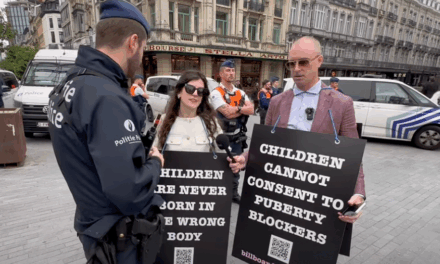In a recent, intense exchange, activist David Hogg and a former Trump administration official found themselves at opposite ends of a contentious debate concerning the deportation of Kilmar Abrego Garcia. This event placed immigration policy and its profound human impact at the forefront of national discourse, igniting a firestorm of opinions across social media and traditional news outlets.
The clash erupted when Hogg, an outspoken advocate for gun control and social justice, took to social media to voice his opposition to Garcia’s deportation, highlighting the challenges faced by immigrants within the United States. Kilmar Abrego Garcia, a young man from Guatemala, has been living in the U.S. for several years, seeking a better life and opportunities that would otherwise be inaccessible in his home country. His story reflects the plight of many immigrants who arrive in the U.S. with hopes of building a safer, more prosperous future.
In his remarks, Hogg passionately argued that the deportation of individuals like Garcia not only undermines the principles of humane treatment but also disconnects families and communities. He underscored the concept of America as a land of opportunity, emphasizing that individuals seeking refuge or a better life should be treated with compassion and understanding rather than scapegoating and deportation.
Countering Hogg’s position, the former Trump official, identified as a staunch advocate of strict immigration policies, defended the legal framework governing immigration enforcement. The official claimed that the enforcement of immigration laws is essential to maintaining national security and protecting American jobs. This argument, however, has been met with significant resistance, including counterpoints regarding the contributions of immigrants to society and the economy.
The official asserted that Garcia’s deportation was necessary under current immigration laws, claiming that individuals who do not follow proper legal pathways to reside in the United States should not be permitted to remain in the country. This perspective often aligns with a broader narrative that associates immigration with issues of safety and job competition—narratives that many activists, including Hogg, vehemently dispute.
As discussions surrounding immigration policies continue to polarize public opinion, the debate over Garcia’s situation exemplifies a more significant conflict in American society. Hogg’s advocacy highlights a growing movement that seeks to humanize the immigration debate, illustrating not just the legal and procedural facets of these policies but their profound social implications. He has persistently urged lawmakers to reflect on the humanity involved in such decisions, thus galvanizing support from diverse demographics concerned about immigration reform.
As the two figures exchanged fiery rhetoric, Hogg suggested that the deportation of immigrants like Garcia represents a failure of compassion and a stark departure from American ideals. He called for comprehensive immigration reform that prioritizes humanitarian concerns while still addressing security needs. His passionate speech emphasized dialogue and understanding rather than division and hostility.
Conversely, the former Trump official argued that leniency on immigration policies could lead to increased illegal immigration and potentially threaten public safety and national security. They maintained that immigrants must adhere to established processes and emphasized the importance of a robust legal framework to manage migration effectively.
This particular debate is one of many escalating discussions surrounding immigration in the U.S., especially as the country approaches significant political elections. According to recent polling data, immigration remains a critical issue for voters, with public sentiment divided. Many individuals support a pathway to citizenship for undocumented immigrants, while others advocate for stricter border security and enforcement measures.
In addition to the polarizing opinions on policy, the broader societal narrative surrounding immigration has begun to shift. Social media platforms have enabled activists, including Hogg, to garner grassroots support and raise awareness about the human stories behind immigration statistics. This grassroots activism, driven by personal stories and experiences, has been pivotal in challenging the prevailing narratives often utilized by critics of immigration reform.
Part of Hogg’s strategy in debating immigration issues involves humanizing the stories of immigrants. He often shares poignant accounts of displaced individuals, emphasizing the socioeconomic factors that lead families to seek refuge in the U.S. His perspective resonates with many who empathize with the struggles faced by immigrants and who advocate for legal pathways that recognize their contributions to society.
Furthermore, Hogg has been vocal about addressing systemic inequalities that contribute to the challenges immigrants face. He argues that addressing root causes—such as poverty, crime, and lack of educational opportunities in immigrant homes—requires a collaborative effort that includes both domestic and foreign policy approaches. By doing so, he aims not only to foster understanding among policymakers but also to inspire broader public support for humane immigration policies.
As the debate unfolds, there are signs that both sides may need to confront their respective positions thoughtfully. For Hogg, advocating for immigration reform means engaging with those who hold opposing views. For the former Trump official, it involves reassessing the long-term effects of hardline immigration policies on communities and families. Finding common ground is essential for moving forward, especially as the nation grapples with the complexities of immigration in an increasingly interconnected world.
The incident has also prompted discussions within political circles, prompting several lawmakers to reconsider their stance on immigration, particularly as they prepare for an election cycle characterized by increasing scrutiny of immigration-related policies. There are indications that a growing number of politicians from both parties acknowledge the necessity for reform, recognizing the importance of creating systems that address both security and humanitarian concerns.
In the wake of this debate, public discourse surrounding immigration continues to evolve. Initiatives aimed at promoting inclusive policies that prioritize the well-being of families and communities are met with increased attention, suggesting a shift from polarized stances to a more nuanced understanding of the complexities of immigration.
Ultimately, the fiery clash between Hogg and the former Trump official exemplifies a broader national debate over immigration, one that is vital to the identity and future of the United States. As the dynamics surrounding immigration grow increasingly complex, the necessity of compassionate policy-making and an inclusive national dialogue has never been more pressing.
As this narrative unfolds, it is clear that the fight over immigration will be a defining issue in American politics, shaping public opinion and collective action for years to come. Both sides must remember that at the heart of this issue are real people with real stories that deserve recognition, empathy, and ultimately a path to a brighter future.
































